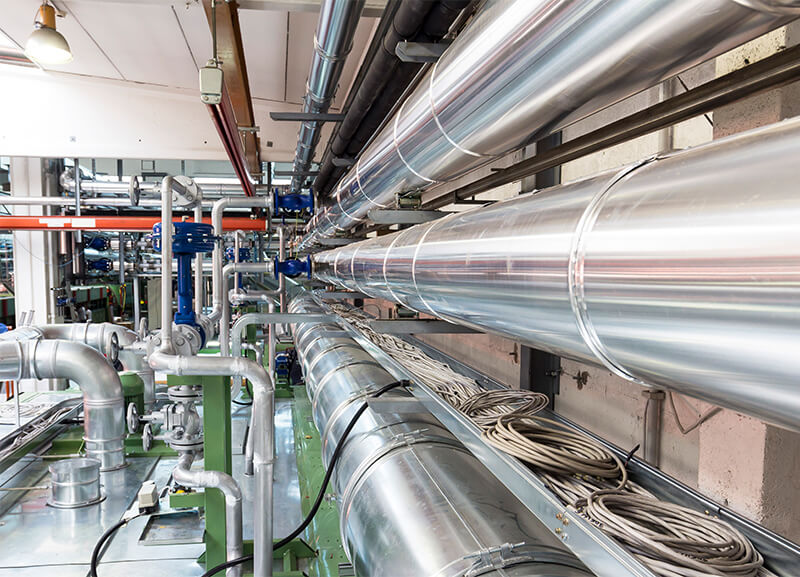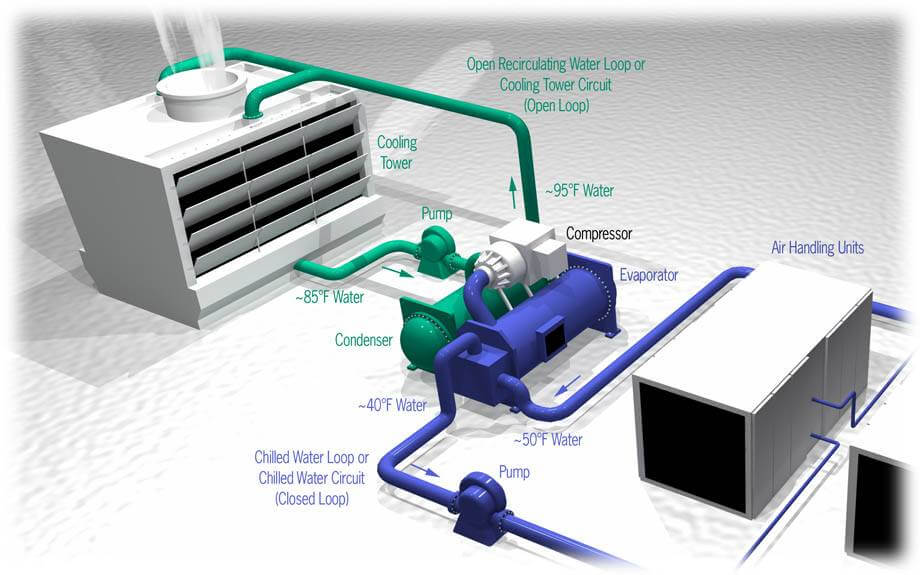Find out how HVAC experts recommend modern climate control solutions
Wiki Article
Recognizing the Various Kinds of Heating And Cooling System for Optimum Performance
Recognizing the various types of a/c systems is crucial for property owners intending to enhance comfort and power performance. Central air systems supply uniform temperature control, while ductless mini-split systems supply flexibility. Heatpump supply efficient year-round climate monitoring. For smaller areas, window and mobile a/c unit function as practical solutions. Geothermal systems use constant underground temperature levels for sustainable cooling and heating. Each choice holds unique advantages, prompting a closer examination of which could fit individual requirements best.Air Conditioning Systems
Although several homeowners look for ways to enhance interior comfort, understanding central air conditioning systems is essential for efficient environment control. Central air runs by circulating trendy air with a system of air ducts, distributing it uniformly throughout the home. This sort of system is composed of numerous key elements, consisting of an exterior compressor, an interior evaporator coil, and a network of ductwork.The compressor cools down cooling agent, which then absorbs heat from interior air as it travels through the evaporator coil. This cooled air is pressed via the ducts and into living areas, assuring a consistent temperature level. Central air conditioning systems are recognized for their performance, typically using programmable thermostats to maximize power use. Normal upkeep, such as filter adjustments and system checks, is important to guarantee long life and performance. Comprehending these parts helps homeowners make notified choices regarding installation and upkeep, eventually boosting comfort and energy efficiency in their homes.

Ductless Mini-Split Systems
Ductless mini-split systems use a flexible option to standard air conditioning, dealing with home owners seeking efficient environment control without the need for extensive ductwork. These systems contain an outdoor compressor unit and one or more interior air-handling systems, enabling targeted air conditioning and home heating in certain areas or rooms. This zoning ability improves comfort by making it possible for users to readjust temperatures based on private preferences, eventually bring about power cost savings.Installment is usually less complex and much less intrusive compared to ducted systems, which can be helpful for older homes or rooms with minimal structural alterations. In addition, ductless mini-split systems often feature energy-efficient modern technologies, such as inverter-driven compressors, which maximize energy consumption based on need. Their small layout additionally permits various positioning choices, making them ideal for non-traditional or limited spaces. Because of this, ductless mini-split systems have actually acquired appeal among homeowners seeking contemporary, reliable HVAC remedies.
Warmth Pumps
Heat pumps represent an energy-efficient and functional option for both home heating and cooling domestic spaces. These systems operate by transferring warmth as opposed to creating it, making them specifically efficient in modest climates. Throughout warmer months, heatpump extract warmth from inside your home and release it outside, supplying air conditioning. Conversely, in wintertime, they reverse this procedure, drawing heat from the outside air or ground to warm up the interior.There are 2 primary sorts of heatpump: air-source and ground-source (or geothermal) Air-source warm pumps are a lot more typical because of their simpler installation and lower preliminary cost, while ground-source models boast greater effectiveness and stability in performance. Furthermore, heat pumps can especially reduce power expenses and carbon footprints when compared to traditional heating approaches, making them an environmentally friendly option. Overall, warm pumps stand as a compelling solution for house owners looking for reliable environment control throughout the year.
Window and Portable Air Conditioners

On the other hand, portable air conditioning unit provide versatility, as they can be quickly relocated from space to space. These devices generally need a venting kit to tire hot air via a home window, yet they supply a convenient alternative for short-term cooling needs.
Both sorts of ac unit are appropriate for occupants and those seeking to stay clear of substantial installation procedures. Users should think about aspects such as BTU ability, energy efficiency ratings, and sound levels when choosing an unit to assure peak efficiency for their certain space and cooling requirements.
Geothermal Heating and Air Conditioning Solutions
As energy effectiveness becomes increasingly essential, geothermal heating and air conditioning systems have actually obtained appeal for their lasting technique to environment control. These systems make use of the steady temperatures found below ground to supply heating in winter and air conditioning in summer season. By harnessing the planet's all-natural thermal energy, geothermal systems substantially decrease dependence on nonrenewable fuel sources and lower utility expenses.
Geothermal systems typically need much less upkeep compared to typical HVAC systems, resulting in long-lasting cost savings. With increasing awareness of environment modification, these systems represent a forward-thinking remedy for those looking for green and effective heating and cooling alternatives
Frequently Asked Inquiries
Exactly how Commonly Should I Service My HVAC System?
Cooling and heating systems need to preferably be serviced twice a year, as soon as in the springtime and once in the fall. Normal upkeep aids guarantee efficiency, prolongs life-span, and protects against pricey breakdowns throughout top use periods.What Size Cooling And Heating System Do I Required for My Home?
Identifying the proper size for an a/c system requires calculating the home's square footage, insulation quality, and environment. An expert analysis warranties optimal performance, convenience, and energy cost savings tailored to the particular requirements of the house.Can I Mount a Cooling And Heating System Myself?
Installing an a/c system individually is feasible, yet it requires technological understanding and skills. Blunders can bring about inadequacy or safety hazards, so getting in touch with an expert is usually recommended to ensure proper setup and compliance with guidelines.What Are the Signs My Cooling And Heating System Demands Repair Service?
Indicators that a HVAC system needs fixing consist of unusual sounds, irregular temperatures, enhanced power bills, undesirable odors, and frequent biking. Motivate interest to these indications can avoid additional damage and guarantee height system performance.How Can I Enhance My a/c System's Power Performance?
To improve cooling and heating energy efficiency, one must on a regular basis change filters, seal air ducts, install a programmable thermostat, guarantee correct insulation, and schedule regular upkeep checks. HVAC experts. These actions collectively boost efficiency while lowering power intake and pricesCentral air conditioning here systems provide consistent temperature level control, while ductless mini-split systems use adaptability. Central air conditioning runs by distributing cool air through a system of air ducts, distributing it equally throughout the home. Central air conditioning systems are known for their performance, usually making use of programmable thermostats to optimize power usage. Ductless mini-split systems supply an adaptable option to traditional central air conditioning, providing to house owners seeking effective climate control without the need for substantial ductwork. Geothermal systems usually require much less upkeep contrasted to conventional Heating and cooling systems, resulting in long-term financial savings.
Report this wiki page